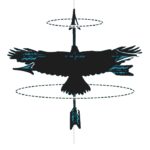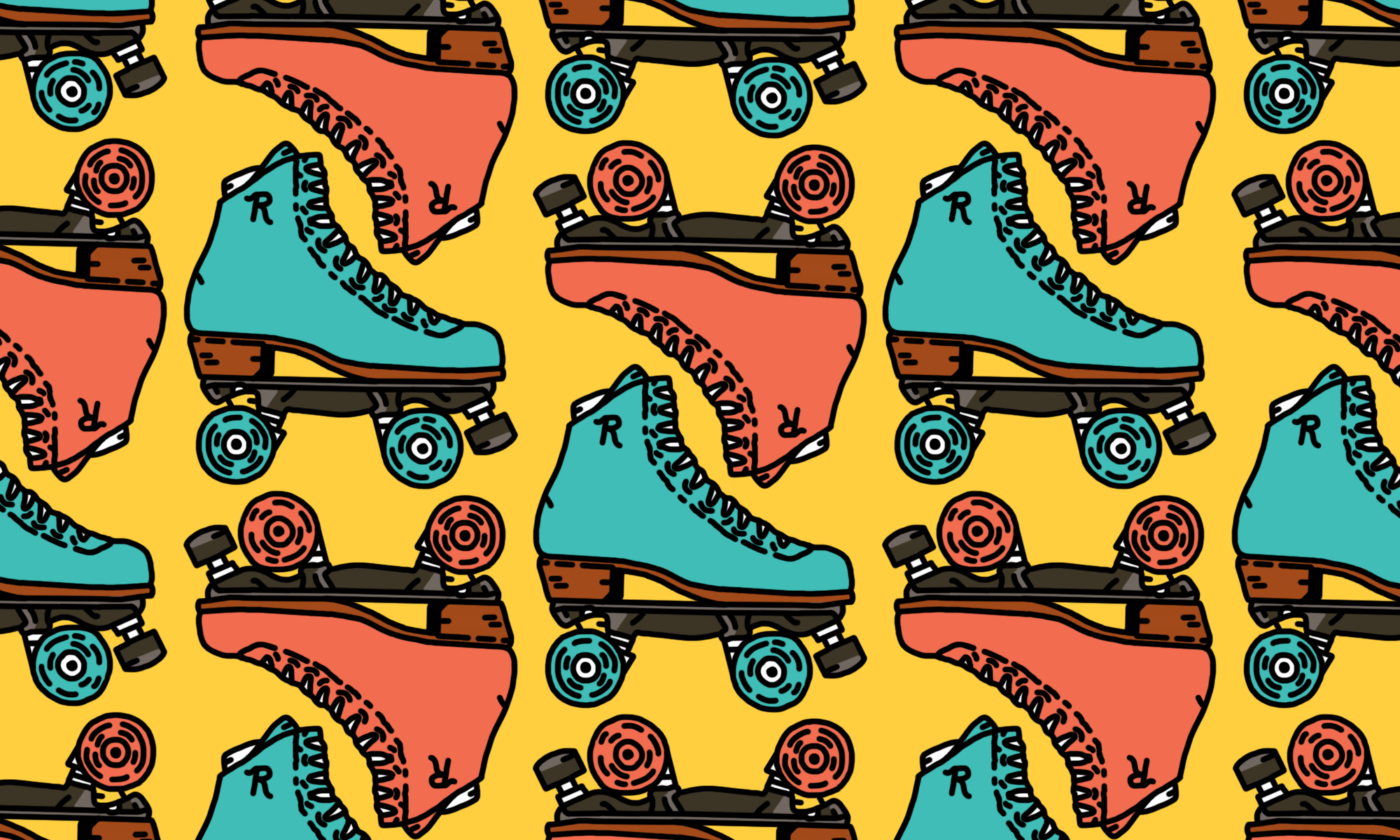When we pulled up to the skate rink I was reciting Motownphilly from memory and she wasn’t impressed but I kept going and the rink was exactly how I remembered: it looked like a corrugated metal airplane hangar with a crooked white banner hanging off the side advertising in blocky red text the FREE COMMUNITY SKATE—right behind it, still, the American Legion post sat sagged and tired and it was mostly the same, but now the paint job’s gone from seafoam green to red and white stripes, but the skate rink, see, it didn’t matter how much it had fallen into disrepair, didn’t matter how many hours we’d driven to be there Because this, I told her, I lectured, was where I spent most of my childhood—and the fact that it was slated for demolition was all the more reason that I have to be here, and I’ll give her credit: she came, she agreed to the seven-hour-plus drive, the fast food, even staying at my parents’ house in the basement guestroom with the broken vent that spits out way too much heat, but walking across the split blacktop inside where she nearly twisted an ankle, I saw then that any remaining semblance of, let’s say, compassion, she had for me or this whole pilgrimage left her right-quick. The place was overcrowded and they were blaring Eighties and Nineties hits, the stuff she doesn’t like, and there, right at the entrance, next to the skate rental counter, she almost got creamed by a wayward hefty twelve-year-old who couldn’t control his direction but, honestly, I was gone by then, taken back: here, the skate rental, exactly as I remembered it, there, the oblong track, slower skaters and parents with children clustered in the middle, high school kids and show-offs around the edge, zipping along quickly, some skating backwards, couples hand-in-hand and trying not to fall, and that was enough—the sour smell, the laughter and tinny music played out of broken speakers: I was back. It might as well have been 1991, so we rented our skates and she told me—again—that she didn’t love being on roller skates, that she didn’t feel totally comfortable, but I reminded her about when she made me go ice skating, against my wishes, and I fell on my hip, landed so hard I had to get physical therapy and acupuncture and for weeks I couldn’t sit right, so she played along and I showed her around, first to the food counter where lines of kids were buying cups of pop and red rope licorice and I told her, right then, that I used to eat so much red rope, would spend my allowance on ropes and inhale it all—and there, I pointed out, behind the counter, was the Polish couple who owned the place, only for another day or so, I guess, doling out microwave pizzas and candy. They looked exactly the same: puffs of white hair, sunken, rubber faces, river-stone eyes set deep as if no time had passed at all and really, I had to take a minute to remind myself it wasn’t 1991—they, back then, would always be behind this same counter, and there’d be a crockpot on the other end near the pop machine full of homemade pierogis you could buy three for a dollar but no one, not one of us kids, ever bought them and I felt bad about that now, not trying them, their hard work sitting boiling and crusting over in a small piece of cooking equipment on top of a faded red Formica counter, and that’s when she told me she had to go to the bathroom, so we walked over carefully on our skates: I touched her shoulder, to help keep her upright, but she wiggled free, didn’t want the help—or, you know, didn’t want my help—and in the bathroom alcove is where the NEO GEO video games used to be—oh, I loved Samurai Showdown—games I spent countless hours playing, but by then she’d already skated off leaving me alone: I didn’t even get to tell her that this, these bathrooms, is where I hid from my fifth grade girlfriend because I knew she wanted to skate and hold my hand, so I went into a stall and stayed there, pretended to wash my hands and my face, emerging only when the romantic songs were over—but, see, I’ve been waiting a while now, she hasn’t come back out, but I’ll give her all the time she needs, I guess, hovering here, studying the skaters, the fake-wood sitting-booths, booths filled with children and parents eating snacks and drinking pop and avoiding the skating altogether: the rink’s dark now, blasted in colored strobe and spotlight, and I’m whisper-singing to myself Back in school we used to dream about this every day, and some kid whizzes by, gets down and shoots the duck and the other skaters clap for him, applaud like he’s cured cancer, and I remember when I used to be able to do that, could do it easily—now, hiding in the alcove, hiding like I used to, it doesn’t matter what song’s playing, what year it is really, how fast the kids are going, how long she’ll be in the bathroom: It’ll all be gone tomorrow.
—
Robert James Russell is the author of the novellas Mesilla (Dock Street Press) and Sea of Trees (Winter Goose Publishing), and the chapbook Don’t Ask Me to Spell It Out (WhiskeyPaper Press). He is a founding editor of the literary journals Midwestern Gothic and CHEAP POP. You can find him online at robertjamesrussell.com and on Twitter at @robhollywood.
Links
Twitter: @robhollywood
Website: robertjamesrussell.com

